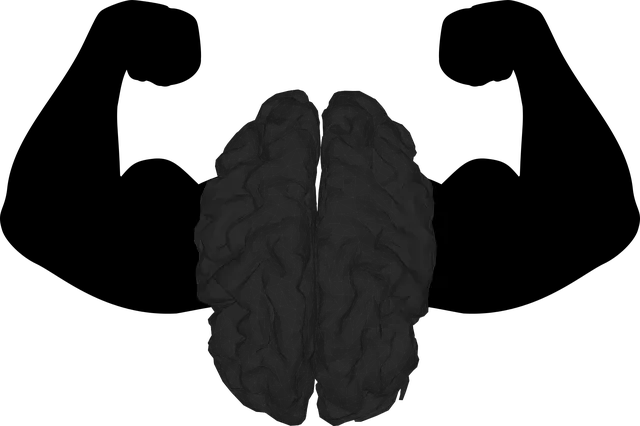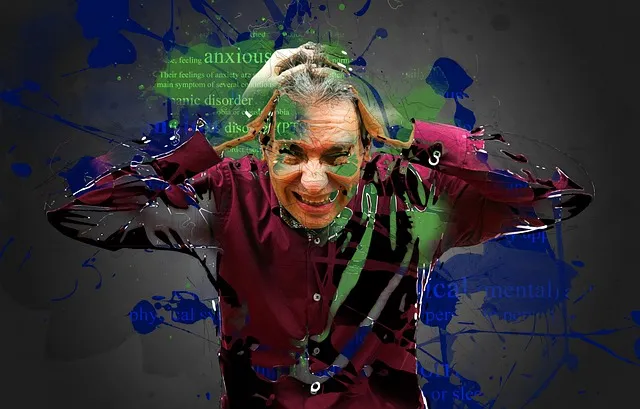Media portrayal significantly shapes societal understanding of mental illness, with accurate representations fostering empathy and encouraging help-seeking behaviors. Kaiser Permanente's mental health appointment centers in Centennial play a crucial role in challenging stereotypes through comprehensive care, community outreach, and education. By integrating innovative techniques like mindfulness training, these centers promote emotional regulation and improve access to quality care. Collaborative efforts between media and experts from these centers can further reduce stigma and foster an inclusive society. Community-driven initiatives at Kaiser Permanente empower individuals to take control of their mental health and well-being.
“In today’s media-driven world, the portrayal of mental illness can significantly shape public perception. This article explores the impact of media representations on mental health stigma and offers solutions for improvement. We delve into successful initiatives like Kaiser Permanente’s commitment to accurate depiction through their mental health appointment centers. Additionally, we present strategies to enhance media accountability and community engagement efforts, such as Centennial’s empowering education programs, all aiming to revolutionize mental illness representation.”
- Understanding the Impact of Media Portrayals on Mental Health Perception
- The Role of Kaiser Permanente in Promoting Accurate Mental Illness Representation
- Strategies to Enhance Media Accountability and Sensitivity
- Centennial Community Engagement: Empowering Through Education and Support
Understanding the Impact of Media Portrayals on Mental Health Perception

Media portrayal of mental illness plays a pivotal role in shaping societal perceptions and understanding of various conditions. The way mental health is depicted in movies, television shows, and news articles can significantly influence how individuals from all walks of life, including those considering a Kaiser Permanente mental health appointment center Centennial, view and interpret these complex issues. Positive, accurate representations have the potential to foster empathy, reduce stigma, and encourage individuals to seek help when needed. Conversely, negative or stereotypical portrayals may exacerbate existing misconceptions, leading to misinformed judgments and potentially deterring people from pursuing necessary treatment.
Promoting accurate mental health representation in media requires a multifaceted approach. Encouraging self-awareness exercises and the integration of mind over matter principles can empower individuals to critically analyze media content. By increasing Mental Health Awareness through open dialogue and education, we can collectively work towards creating a more supportive environment where those facing mental health challenges are met with understanding, compassion, and access to quality care, such as that provided by Kaiser Permanente mental health appointment centers.
The Role of Kaiser Permanente in Promoting Accurate Mental Illness Representation

Kaiser Permanente plays a pivotal role in challenging stereotypes and promoting accurate mental illness representation through its dedicated mental health appointment centers. Located in vibrant locations like Centennial, these centers serve as hubs for providing comprehensive care and fostering emotional well-being. By integrating innovative techniques such as mindfulness training, cognitive behavioral therapy, and mood management strategies, Kaiser Permanente empowers individuals to navigate and regulate their emotional states effectively.
The organization’s commitment extends beyond treatment; it actively engages in community outreach programs that educate the public about mental health issues, breaking down barriers and fostering a culture of empathy and support. Through these efforts, Kaiser Permanente not only improves access to quality care but also contributes to a more nuanced understanding of mental illness, emphasizing the importance of emotional regulation as a key component of overall health.
Strategies to Enhance Media Accountability and Sensitivity

Media representation of mental illness plays a pivotal role in shaping public perception and understanding. To foster accountability and sensitivity, media outlets must adopt best practices that promote accurate and nuanced portrayals. This includes consulting with experts like those from Kaiser Permanente mental health appointment centers in Centennial to ensure factual accuracy and avoid stereotypes. By integrating real-life perspectives and experiences, media can contribute to Mental Illness Stigma Reduction Efforts, fostering a more inclusive and supportive society.
Additionally, implementing Self-Awareness Exercises for content creators can help them recognize their own biases and preconceptions. Risk Management Planning for Mental Health Professionals can also guide media in handling sensitive topics responsibly, ensuring that stories are told with empathy and respect for individuals living with mental health conditions. These collaborative strategies aim to move beyond mere representation towards a more profound understanding and acceptance of mental health challenges in our communities.
Centennial Community Engagement: Empowering Through Education and Support

In communities like Centennial, where access to quality mental health services is a priority, Kaiser Permanente’s mental health appointment centers play a pivotal role in fostering community engagement and empowerment. These centers serve as hubs for education, support, and crisis intervention guidance, catering to diverse needs within the region. Through various initiatives, they aim to demystify mental illness and promote understanding, challenging societal stigmas that often hinder individuals from seeking help.
Centennial Community Engagement strategies focus on holistic well-being, emphasizing emotional regulation and self-esteem improvement as key components of a healthy lifestyle. By organizing workshops, awareness campaigns, and peer support groups, these centers create safe spaces where open conversations about mental health are encouraged. This community-driven approach not only empowers individuals to take charge of their mental well-being but also ensures that resources like Kaiser Permanente’s expertise are accessible to all, fostering a culture of resilience and support.
Media representation plays a pivotal role in shaping public understanding of mental illness. By highlighting accurate, empathetic portrayals, organizations like Kaiser Permanente’s mental health appointment centers can foster a more supportive environment. Through community engagement initiatives, such as those in Centennial, we can empower individuals and dispel stigma. Implementing media accountability measures and sensitivity training ensures responsible storytelling, ultimately contributing to better mental health perceptions and support systems for all.






